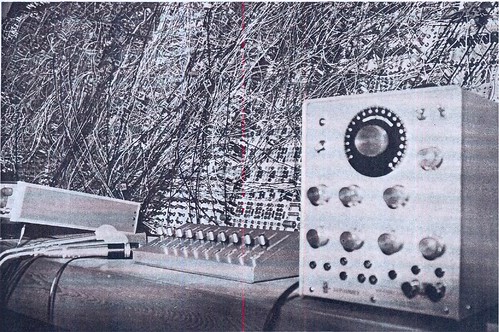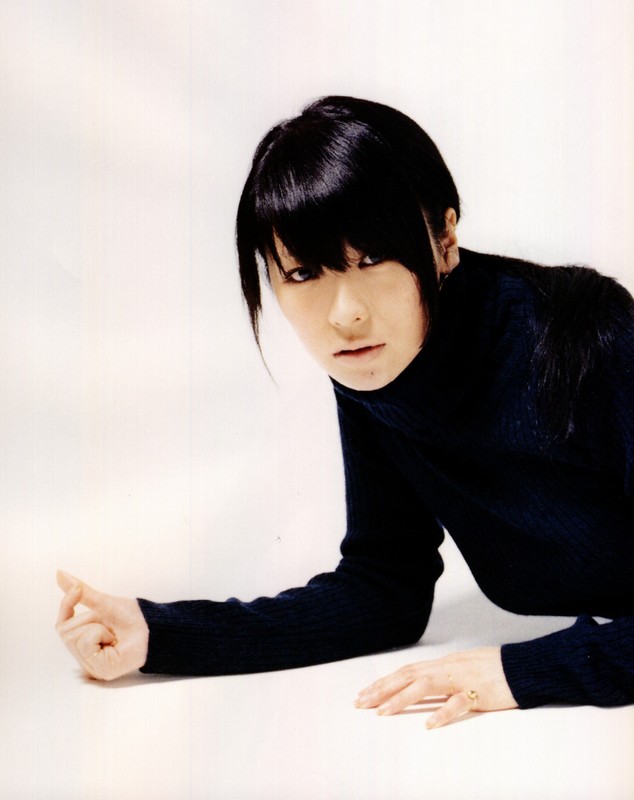 Tomado de Pitchfork magazine:
Tomado de Pitchfork magazine:"Brazilian composer, musician, teacher and philosopher Rogério Duprat died Thursday of causes related to bladder cancer and Alzheimer's at age 74, Reuters reports.
Though Duprat is primarily known outside of Brazil for his involvement in the late-60s Tropicália movement, his career and importance extended far beyond that work into MPB (Música Popular Brasileira), film scores, radical philosophy, and the musical avant garde.
Born in Rio de Janeiro, Duprat spent most of his life in and around São Paulo. His first professional work as a musician occurred in 1953, when he joined the Orquestra Sinfônica Estadual as a cellist, later playing in the Orquestra Sinfônica Municipal de São Paulo and founding the Orquestra de Camara de São Paulo.
Around this time, he also began composing for TV, films, and theatrical productions, the beginning of a long career in multimedia composition. He scored over 40 films during his career, including a long and fruitful collaboration with Brazilian director Walter Hugo Khouri, which netted him awards for his work on A Ilha, Noite Vazia, and Carpo Ardente.
During the early 60s, Duprat traveled to Europe to study with avant garde composers Pierre Boulez and Karlheinz Stockhausen. During his studies with Stockhausen in Germany, he was classmates with a young Frank Zappa. Though he is sometimes referred to as "the Brazilian George Martin" for his work with Os Mutantes, his brief association with Zappa is more revealing, as both men played leading roles in the integration of electronic experimentation and classical composition with popular music, and both valued humor highly in their work.
When he returned to Brazil in 1963, Duprat co-founded the Música Nova movement with seven other Brazilian composers, including his brother Régis. The movement, supported by a written manifesto, proposed the abolition of nostalgia and advocated art's role as part of the culture industry and the necessity of art's engagement with people's lives. Duprat and fellow Música Nova composer Damiano Cozella were heavily criticized from all corners for their experiments composing with the IBM 1620 computer.
In 1965, he joined poet Décio Pignatari's MARDA movement, which celebrated bad taste, and was among the hundreds of professors and staff members to resign from the University of São Paulo when Brazil's military government took over the campus.
Given his involvement with so many radical movements, his involvement with Tropicália, which had a written manifesto critical of the government's human rights abuses and censorship, was hardly surprising. Brazil's conservative right naturally reacted badly to Tropicália, but perhaps more surprising was the criticism the movement received from other factions of the left, who considered Duprat's bold use of electric instruments--especially the electric guitar--in his arrangements to be un-Brazilian and culturally suspect.
Tropicália's members--Duprat, Gilberto Gil, Caetano Veloso, Os Mutantes (discovered by Duprat), Gal Costa, Torquato Neto, Tom Zé, Jorge Ben and Nara Leão--issued their musical mission statement, Tropicália: Ou Panis et Circencis, in 1968. Duprat is the one with the mustache and glasses holding the chamber pot and saucer in the iconic cover photo and wrote the album's arrangements.
That same year, Duprat issued a solo album. A Banda Tropicalista do Duprat is by far the most overlooked album of the movement. Featuring appearances by Os Mutantes, it warps the Beatles and the Cowsills into exotic sound sculptures that merge psychedelia with bossa nova, jazz and modern classical composition. Other source material for the album included the songs of Tropicália leaders Veloso and Gil, the Tom Jobim/Vinicius de Moraes standard "Chega de Saudade", and the Carnavál music of Lamartine Babo. The mix is full of humor, assaulting easy listening strings with car horns, talking drums, and a rock band.
His best arrangements of the period include the swirling psychedelic orchestration of Caetano Veloso's defining "Tropicália," Gilberto Gil's "Domingo do Parque," and the mind-blowing orchestrations for Chico Buarque's 1971 MPB masterpiece Construção. And then there's Gal Costa & Caetano Veloso's "Baby," one of the most beautiful string arrangements ever produced for a pop song. The strings float in clusters over the bossa nova-inspired beat, fragmenting and reuniting in constantly mutating phrases. I can still get chills from hearing his fluttering arrangement responding to Costa's tumbling repetitions of "America do Sul."
Though Tropicália was in the odd position of being both outside the mainstream and outside the accepted parameters of leftist music, Duprat's genius was such that he still managed to win major awards in Brazil for his arrangements. Tropicália was effectively hobbled as a movement with the exile of Veloso and Gil, and Duprat moved on, touring Europe with Os Mutantes and working with ex-Mutante Rita Lee and the rock band O Terço.
He continued to do film and television work, establishing his own studio and writing advertising jingles, but all of the time he spent in the studio compromised his hearing. Hearing problems slowly forced him out of music during the 1980s, and he retired to his farm at Itapacerica in the São Paulo hinterlands, working as a carpenter and practicing yoga. His last major work was the 1987 score for André Klotzel's A Marvada Carne (That Damned Meat), most of which was not used--he refused an award for the soundtrack work because too much of his music had been replaced with another composer's work.
Late in life, Duprat expressed the belief that he had said everything he had to say in the 60s and 70s. He accepted only two arranging commissions, including one from old friend Rita Lee, during the whole of the 1990s. He was the subject of a film documentary, Vida de Músico, in 2002.
Duprat's wake was fittingly held at the São Paulo Image & Sound Museum. He is survived by his wife of 59 years, Lali, three children, and an artistic legacy at once challenging and inviting."






